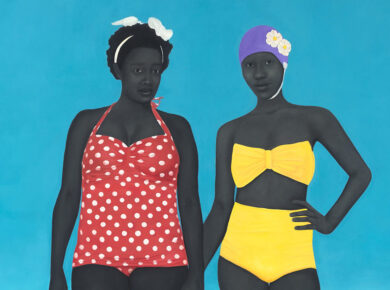Non-Fungible Tokens (NFTs) have transformed the digital world, providing creators with new ways to authenticate, sell, and share their work. For Black artists, who have often faced systemic barriers to access and recognition, NFTs open doors to preserve, monetize, and amplify Black art and culture on a global scale.
What Are NFTs and Why Do They Matter?
NFTs are unique digital assets stored on a blockchain. Unlike cryptocurrencies like Bitcoin or Ethereum, which are interchangeable, NFTs are one-of-a-kind. They represent ownership of digital or physical assets. This innovation allows artists to tokenize their work—whether visual art, music, or literature—and sell it directly to buyers, bypassing intermediaries such as galleries or record labels.
Blockchain technology ensures transparency and traceability, protecting artists from plagiarism and preserving their credit. Additionally, NFTs allow creators to embed royalties into their tokens, guaranteeing a share of profits from future sales. This system significantly benefits artists who were often excluded from the value of resold works.
Preserving Black Art and History
Black art and culture are built on storytelling, resistance, and history. Unfortunately, systemic inequalities have often undervalued or overlooked this heritage. NFTs offer a digital solution to preserve these narratives for future generations.

Denzil Forrester, Jah Shaka, 1983
- Digital Archiving: Historical artifacts, photographs, and artworks can be digitized and authenticated as NFTs. This preserves their integrity while making them accessible to a global audience. Imagine an NFT-based archive of the Harlem Renaissance or Afro-Caribbean art, each piece linked to its origin and story.
- Decentralized Ownership: Instead of relying on institutions like museums or galleries, Black artists and communities can take control of their stories. Tokenizing oral histories, cultural traditions, or ancestral art ensures these pieces remain in the hands of those who value them most.
- Global Reach: Blockchain transcends geographic boundaries, allowing Black artists to connect directly with collectors worldwide. This exposure creates opportunities for collaborations, visibility, and economic empowerment.
Monetizing Black Creativity
NFTs empower Black artists by providing financial independence. Historically, traditional art markets undervalued Black creators, often leaving them underpaid. NFTs change this dynamic by enabling direct-to-consumer sales and bypassing gatekeepers.
- Royalty Models: Artists earn passive income as their work appreciates in value through resale royalties.
- Crowdfunding: NFT platforms let artists raise funds for projects by selling limited-edition works or collectibles.
- New Markets: NFTs appeal to tech-savvy, younger audiences who may not engage with traditional galleries or auction houses.
Challenges and Considerations
Despite their potential, NFTs come with challenges:
- Technology Access: Minting NFTs can be costly, and learning blockchain technology presents barriers for some artists.
- Environmental Concerns: Blockchain energy consumption has raised criticism, though many platforms now adopt sustainable solutions.
- Market Saturation: As NFTs grow in popularity, standing out becomes harder. Platforms must amplify Black voices and emphasize cultural significance over hype.
The Future of Black Art in the NFT Era

As NFTs evolve, Black creators and communities have the chance to shape this technology’s future. By embracing blockchain, they can preserve cultural heritage, challenge traditional power structures, and redefine the value of Black art.
Platforms like Zora, Foundation, and OpenSea have already showcased groundbreaking works by Black artists. Collectives such as Black NFT Art foster collaboration and visibility. Innovations in AR, VR, and the metaverse will only expand these possibilities, enabling immersive experiences of Black art and culture.
Conclusion
NFTs are more than a passing trend—they are revolutionary tools for empowering Black artists and preserving culture. By leveraging this technology, Black creators can tell their stories authentically, ensure their work is valued, and secure their legacies for generations. The role of NFTs in shaping the future of Black art and culture will only grow in importance as the digital age continues to unfold.






